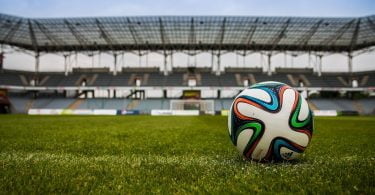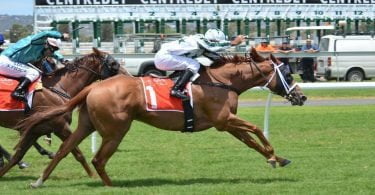Andre Greipel’s pro-cycling career prior to the 2015 Tour de France looked in danger of tailing off into a perverse sideshow centred upon his gargantuan thighs or powerhouse cameos in one-day classics racing. Alas, such is the life of a sprinter whose whole profession boils down to ten seconds of maximal power output at the end of a six hour high-speed procession: one minute you are the next big thing, the next, a has-been.
After an opening week bejewelled with two scything victories over a man revered as the ‘greatest sprinter of all-time’, I am sure Greipel can spare a breezy chuckle at the characteristically fickle reportage that documents sprinting fortunes.
Last training ride done before the TDF2015. @Lotto_Soudal @IceWatchBrand @Ridley_Bikes @lazerhelmets @gaernecycling pic.twitter.com/fa1d85Ske3
— Andre Greipel (@AndreGreipel) July 3, 2015
The acclaimed Manxman, Mark Cavendish is the aforementioned sprinter now on the receiving end of the media’s pendulum swing in Greipel’s favour. This means that Cavendish now assumes the archetypal role of harrowed and harassed loser penned in by bloodthirsty hacks against the safety of his besieged team bus that had originally been cast as suitable for Greipel.
Chequered history
Nevertheless, there are at least three pure sprinter stages remaining in the iconic French grand tour and therefore more honours to be fought over. What is truly newsworthy at present is the promise of continued conflict between Greipel and Cavendish in a relationship between two high octane speedsters tainted by more than a little chequered history.
Eight years ago when Greipel was of suppler skin and Cavendish of fleshier waistline, the two budding sprinters were still youthful neophytes in the cycling peloton. Both displayed precocious talent if in vastly different body profiles.
Greipel’s brutish power secured him his breakout overall win at the 2008 Tour Down Under which comprised of four frankly violent sprint triumphs, whilst Cavendish used a rich blend of poise, positioning and spry accelerations granted by his smaller frame to unveil himself as the era’s leading sprinter with four stage victories at that year’s Tour De France.
Whilst they were both evidently plotting their own individual routes to sprinting stardom, the scenario had one major sticking point. Both Greipel and Cavendish were employed by T-Mobile racing, soon to be rebranded as HTC-Colombia.
Just as each professional cycling team is formulated around one General Classification hopeful that is supported by a unit of domestiques, similarly there is only scope for one sprinting kingpin who harnesses the allegiance of his team.
Only room for one
As the mathematical platitude decrees, two into one cannot be solved and thus the catalyst for festering animosity between the two ambitious young men was conceived.
There were moments of compatibility such as at the 2008 Giro D’Italia, where the two speed men worked in unlikely harmony with Cavendish seizing two victories before subsequently playing lead out man to Greipel’s sprint conquest on the seventeenth stage of the grand tour.
But Cavendish was never primed for playing the deferential aide; Cavendish is a bullet train programmed to collar centre stage in those final metres of tarmac. He does not own nor desire a second fiddle.
Growing distance
As the years passed it became increasingly apparent that Cavendish was valued above Greipel in the sprinting stakes at HTC Highroad. Whilst Cavendish was rolled out for the premiere classics and the Tour, Greipel was the team’s B side, cast out more frequently at the Giro and Vuelta.
Inevitably, given this climate, storied flashpoints arose in the camp such as at the 2007 French stage race Etoile de Besseges where Cavendish was obliged to carry Greipel to victory but lost the hulking German in the frenetic final kilometre. He then instead decided to uptake the team’s sprinting responsibilities to finish second. But the disintegration in their ever crumbling union reached a point of no return in 2010.
Separation issues
At that juncture, despite Cavendish’s interrupted opening to the season with sporadic injury combined with Greipel’s dominant sprint exhibitions at the Tour Down Under and the Vuelta Algarve, Cavendish was still chosen ahead of his teammate for that year’s feted classic ‘Milan-San Remo’.
Spurned and dejected from playing the bridesmaid once too many times, Greipel was overlooked on a final occasion for the Tour before he abruptly left in a blaze of indignation to join Team Omega Pharma-Lotto.
Which planet is he living on? RT Greipel says he’s faster than Cav. In 2011 after German joins Omega Pharma-Lotto (via @roadcc)
— Matt Legge (@the_villain) August 10, 2010
Words were exchanged with Greipel frequently predicating any comment on Cavendish with the choice adjective “selfish” followed by Cavendish’s cutting riposte: “Me on bad form is still better than him.”
The Cavendish Era
It is fair to say that relations in that fractured 2010-2011 stint were somewhere left off frosty, careening off road towards the vicinity of non-existent.
From here ensued the Mark Cavendish era which was annually recognised for four successive years on the cobble clad paving of la Champs-Elysees in late July. Here, searing showcases of blistering speed left onlooker’s bewildered as it almost became convention that the final image of the Tour De France was allocated to a triumphant Cavendish, arms aloft beneath the iconic Arc de Triomphe.
It was an era that constituted a win at Milan-San Remo in 2009, World Champion status and the Tour’s green jersey in 2011, all consumed by his ballooning palmaris. A tally of 25 Tour de France victories was imperially amassed leaving him third in the all-time list of total wins behind the deified likes of Eddy Merckx and Bernard Hinault.
We were watching the greatest sprinter who had ever graced this Earth bestride the most historic settings on the cycling calendar and it was a blissful watch.
Far from anonymous
All this is not to say that Greipel was anonymous during this timeframe. Far from this as he topped the sprinting classification at the 2009 Vuelta Espana and won a trio of laudable stages at the Tour in 2012.
Speed reached of @AndreGreipel & @johndegenkolb in stage 5. Almost 50mph. Frightening. #homeofcycling #TDF2015 pic.twitter.com/wiZP3ZrnXn
— British Eurosport (@EurosportUKTV) July 9, 2015
It was the manner of Cavendish’s success as well as the quantity that created the gulf between the two rivals. Greipel was peddling the clichéd act of the blitzkrieg sprinter all muscle and grim faced, whilst Cavendish was plugging an unprecedented product of whippet like acceleration and a sleek torso that seemed to coarse like liquid around his competitors.
When Cavendish prospered on stage 18 of the 2012 Tour during the finish into Brive-la-Galliarde, we bore witness to the finest showcase of sprinting in recent memory as he darted from wheel to wheel with an extra sensory precision, swallowing a breakaway and roaring himself over the line all in one breathless sitting.
Where Griepel was run of the mill, Cavendish had rarefied himself as a once in a lifetime spectacle.
Winning is the goal
Yet all that really counts in sprinting is the winning. After all, that is what guarantees the bulging pay-packets.
Since 2013, there has been a gentle undercurrent of murmurs that Cavendish may be slowing down. In bygone years this would have been quashed as sacrilege against a sprinting demi-god, but the emergence of the rangy German Marcel Kittel who restricted Cavendish to a meagre two stage wins in the 2013 Tour and even shockingly upstaged him that year at the symbolic site of his long reign, la Champs-Elysees.
Perhaps the man who races under the epithet of “The Manx Missile” is merely a victim of his own success after setting his own precedent for success so unfathomably high, year upon year that an impressive two Tour stage wins carries a sense of deflation with it.
Let me tell you, if a French sprinter of any note secured two stage wins in an edition of the Tour, he would be written into the fabled folklore of the event, provided the keys to Paris and be gifted the finest Vin Rouge from the finest restaurants of each arrondissement .
But as ever with sprinting, the devil is in the detail. A marked anxiety has woven itself into Cavendish’s work, exemplified most damningly during last year’s inaugural stage of the Tour set under British eyes in Harrogate where Cavendish felt compelled to go early, jousted for position with the Australian Simon Gerrans and swiftly brought them both to Earth with a collarbone shattering crunch.
Mark Cavendish suffers separated shoulder, will apologise to Gerrans for causing crash. http://t.co/ojndMh3UcC pic.twitter.com/nZpLVjvEGC
— CyclingTips (@cyclingtips) July 6, 2014
If that premature end to his Tour didn’t smack of a sagging self-belief, then Griepel’s late charges past his fading efforts this week have confirmed a nagging uncertainty pervading his craft.
The constant questions
When to go? What wheel to follow? Which gap to exploit? All these questions bombard a sprinter’s mind in the fleeting seconds in which a sprint is contested.
Against the backdrop of irrepressible form these questions are answered instinctively and in the case of Cavendish, customarily with competitive devastation. However, when you are no longer convinced of your supremacy these questions become internal arguments acted upon indiscriminately.
Whether he has lost some of the lean muscle mass that drove his lightweight build to the line or whether his competitors have stolen a pivotal march on him, will all be of little concern to Cavendish.
In Cav’s world, it is simple. If you win, you win; if you lose, you lose. Let’s stop the over-analysing.
The battle continues
And win is what he has done. As the inaugural week of the Tour drew to a close and the prospect of rising gradients loomed in week two, both Griepel and Cavendish were presented with one final sprint stage in which to assert early authority over each other.
On a gentle uphill finish in Fougeres which forked left to the line, Griepel wrestled his machine over to the right in a characteristically explosive rush of power, whilst Cavendish diverged left in his own inimitable style of shoulders laterally pumping and head low peering out over the parapet of the handlebars.
The win was Cavendish’s by a matter of inches. A game of inches rather, where fractions of a second and infinitesimal measurements had rendered irrelevant thousands of column inches that had heralded the kingpin’s demise and championed his old foe’s revival.
Just seen finish from yesterday’s @letour @MarkCavendish with an explosive but patient finish! #ManxMissile pic.twitter.com/c8kCu0Vz8L
— Matt Regan (@Matt_Regan) July 11, 2015
In defeat Greipel graciously ceded that, “[Cav’s] timing was better, period.” Mirroring the humility shown by Cavendish following his failures earlier in the week when the Manxman declared that Greipel was, “a phenomenal sprinter.”
The ill will has dissipated, a more equal footing has been established and a concise respect now fringes their relationship. May the best man win on Sunday week upon la Champs-Elysee.








